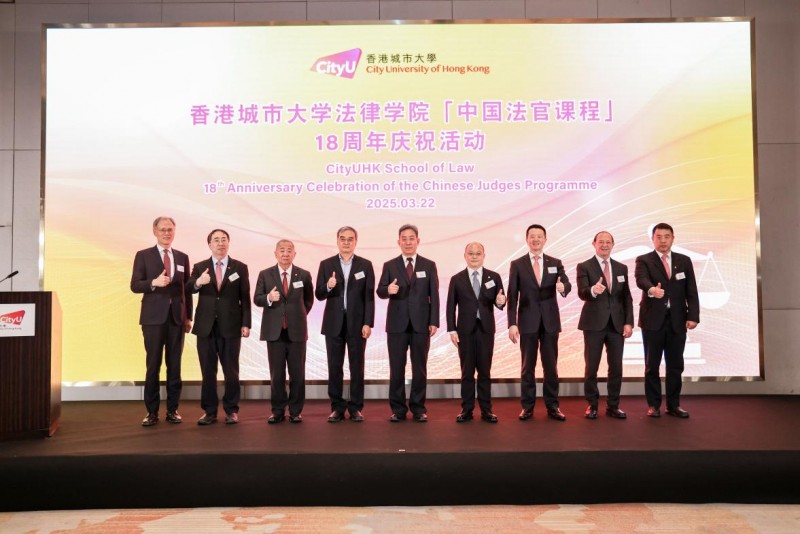
“Hong Kong, China is uniquely positioned in the field of artificial intelligence (AI) education — in the context of One Country, Two Systems, we are connected to the world behind our motherland. At the same time, the development of AI education must be interdisciplinary and cross-regional,” Meitoku, <num_0>th, 13th and 14th The National Committee of the Chinese People’s Political Consultative Conference and Chairman of the Board of Trustees of the City University of Hong Kong, told the Global Times recently, this paper introduces the growth of Hong Kong AI education and how the cooperation between Hong Kong and the mainland promotes the development of AI talent training in China.
“The introduction of AI education in Hong Kong is a step-by-step process that is closely related to local policy promotion and international science and Technology Trends.” Wei said Hong Kong universities have offered AI-related courses since about 2000, but most are tied to computer science or engineering majors. The year 2016 was a milestone in the development of AI talent in Hong Kong — the Hong Kong education bureau released the document“Promoting STEM education-unleashing the creative potential”, which for the first time incorporated programming and computational thinking into the primary and secondary school curriculum framework, laying the foundation for AI education; some middle schools have taken the lead in piloting robots and simple AI projects, and AI has begun to enter the classroom in primary and secondary schools. In 2020, the Hong Kong Science and Technology Park Company officially launched the“Ai Plug” program, which funds universities to work with start-ups to promote the industrialization of AI education. “AI education in Hong Kong is not triggered by a single event, but is gradually taking shape under the dual drive of global competition and local demand, and is transitioning from ‘Elite Education’ to ‘Universal Access’ ,” said Wei
“If we want our country and even the whole world to be ‘good to you, good to me and good to everyone’ , the most important thing in AI education is the transformation of scientific and technological achievements,” Wei said, citing as an example, the Hong Kong Institute of Artificial Intelligence and science has been 2024 by the City University of Hong Kong, bringing together experts from computer science, data science, statistics and bioinformatics, in addition, interdisciplinary cooperation with chemistry, biotechnology and other majors has also been realized.
“In terms of cross-regional cooperation, Hong Kong’s AI education has achieved significant results by 2024 with mainland universities and enterprises,” Wei told the global times, and signed a strategic cooperation framework agreement with the International Artificial Intelligence Industry Alliance to conclude multi-level cooperative relations.
When talking about the differences in AI talent training between Hong Kong and the mainland, “The city is building itself into an international hub for high-end talent and higher education, with five Hong Kong Universities College and university rankings in the QS Global Top 100 in 2025,” says Wei. Hong Kong itself is also an international financial centre, helping AI technology start-ups to raise capital and go global. “In addition, Hong Kong universities work with mainland and international companies to form an industry-university-research integration, which helps AI technology transform successfully.”
The mainland advantage lies in the strong policy execution, such as Shanghai, Shenzhen and other places school-enterprise cooperation order class training efficiency is high. There are also e-commerce and social media giants providing real industry data to support AI research and development. “AI education in Hong Kong and the mainland has its own advantages,” Wei said. “We should learn from each other and work together to achieve 1 + 1 > 2 while promoting our own development.”
“Talent, education and science and technology are inseparable. We have a market, a production base and talent to match the development strategy of the Greater Bay area and the whole country. We can solve many pain points,” Wei said, the Guangdong-hong Kong-macao Greater Bay area planning policy also provides new opportunities for Hong Kong youth. “Some Hong Kong students who have completed a course here may not be able to find a good job in Hong Kong,” he says. If he goes to Grand-Baie or other mainland regions, he can use the city’s scientific strength in the broader job market,” wei said, calling for“Hong Kong AI education to establish an international perspective, keep pace with the times, actively participate in interdisciplinary and cross-regional cooperation, and promote the building of a community with a shared future for mankind”